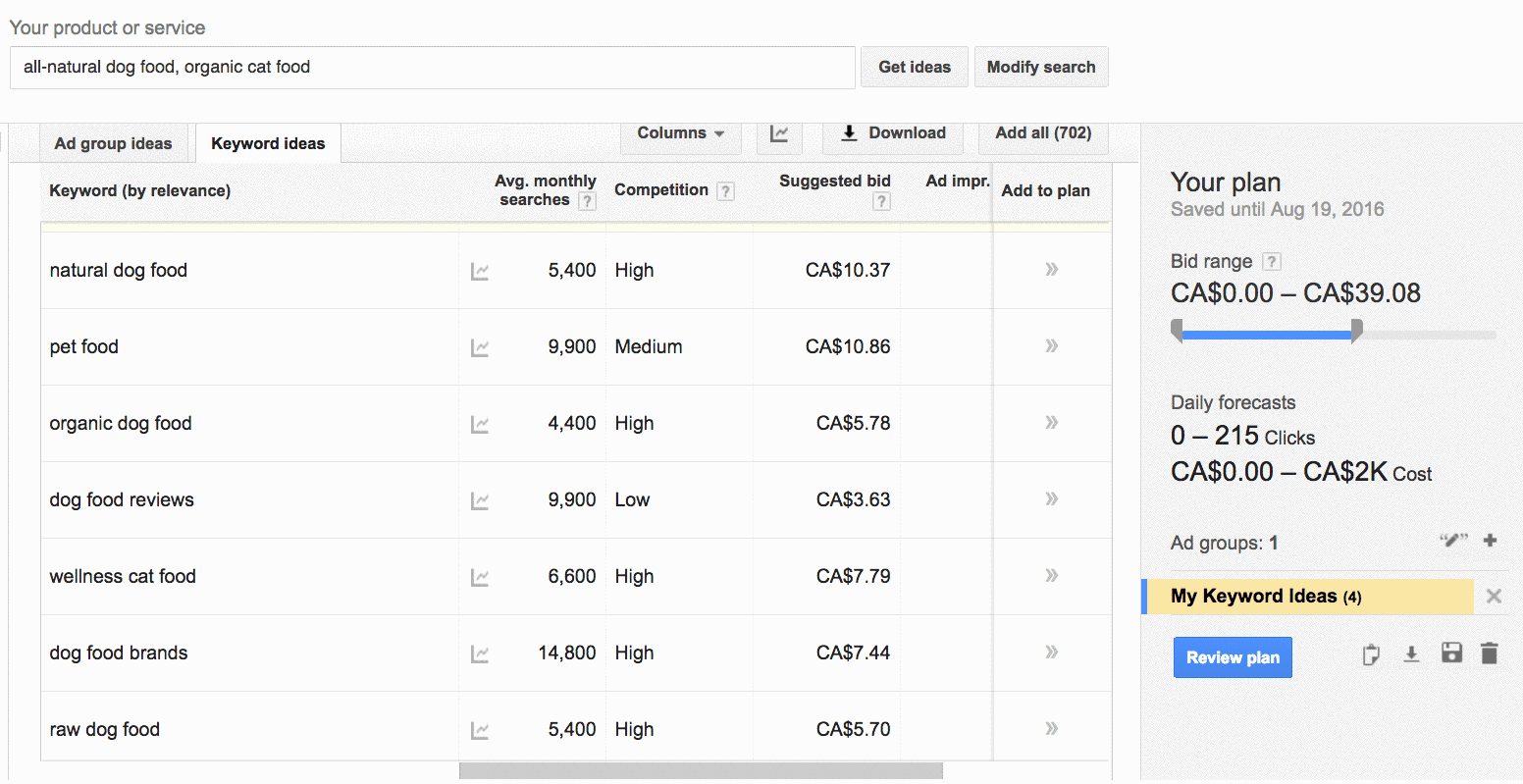Search Engine Optimization (SEO) encompasses many tactics, but the main idea is that you're helping Google and other search engines understand your eCommerce brand and what products you sell. SEO increases your visibility by improving the likelihood search engines will list your site in relevant search results when potential customers are looking for products. In this post, I'll focus on one major part of your SEO strategy: keyword research for eCommerce stores.
Keyword research is the art of better understanding the terminology consumers use to find products. Applying data found in keyword research to your site's copy and marketing language can have a significant impact on what, when, why, and how your site appears on search engines like Google. Over time, you'll help search engines will better match your store as a relevant result for certain search terms - leading to more traffic and opportunities to convert sales.
Keyword Research For eCommerce SEO
Every time someone uses a search engine, algorithms determine the most relevant matches for their search query. In short, the closer you are to the top of Google for relevant search terms the more traffic and potential revenue you'll receive. The difference in just a few positions can represent significant revenue loss in the long term.
Before we think about brainstorming an initial list, I want to introduce the concept of "Competition." Competition refers to the difficulty of ranking for each particular keyword. In an ideal situation, your chosen keywords would have high search volume (popular searches) and minimal competition (easier to rank high). Focusing on keywords with high search volume and lower competition will lead to highly effective search marketing results.
Building Your Keyword List
Brainstorm an initial list of search terms you believe shoppers use to find your store and products online. You may want to ask friends, family, or customers for their input. In addition to crowdsourcing, there are a plethora of helpful tools available for researching eCommerce SEO keywords.
Google Keyword Planner Tool
One of the best tools for expanding your keyword list is Google's Keyword Planner Tool. The Google Keyword Planner Tool allows you to determine how many people search for a given term in an average month, how much competition there is for that term, and will suggest related search terms. The related search terms are important because they expose you to similar keywords, some of which could have a greater number of searches, less competition or a combination of both.
Over time, search engine algorithms and the terms your customers use will change, so it's important to update your keyword research routinely. According to Google, 15% of searches are unique and never been searched for before... so there's always room for improvement!
 An example of how to use Google's Keyword Planner Tool for eCommerce SEO Research.
An example of how to use Google's Keyword Planner Tool for eCommerce SEO Research.
Other Keyword Research Tools & Tips
Amazon
Go to Amazon and start typing a keyword that describes your products. Amazon suggestions will immediately give you an overview of what products and categories people are searching for related to your keywords.
You can use Pinterest to get a better understanding of the semantic phrases people are using to discuss your products. For example, try using Promoted Pins for Pinterest to spit back a list of related subjects that can spark keyword ideas. Pinterest has more of a focus on products than most other social media sites; it's a great venue for conducting keyword research for eCommerce.
Paid Search & Google Ads Marketing
Dynamic Search Ads use the power of Google's organic web crawling technology to determine when to serve your ads. After creating description lines for your ads, sit back, and let AdWords run the show. In your search terms, you can find a goldmine of keywords for eCommerce advertisers that you may not have considered.
Additionally, Google tracks a list of queries that trigger the ads. Check this list regularly to identify the best performing search queries. Then, plug the top terms into the Keyword Planner to confirm that they have sufficient volume. If so, they're probably worth adding to your search ad groups.
Use keywords with commercial intent. Generic keywords are usually higher in traffic but don't necessarily have a specific intent that can lead to conversions. You want to stick with leads that have a commercial purpose, leads who are using language that suggests they are close to making a purchase decision.
Let no one convince you otherwise: it's a buyer's market in 2017. Consumers today have unlimited data and competitive intelligence at their disposal. Targeting the right keywords will ensure that you are reaching shoppers that are most likely to purchase and become your customers.
